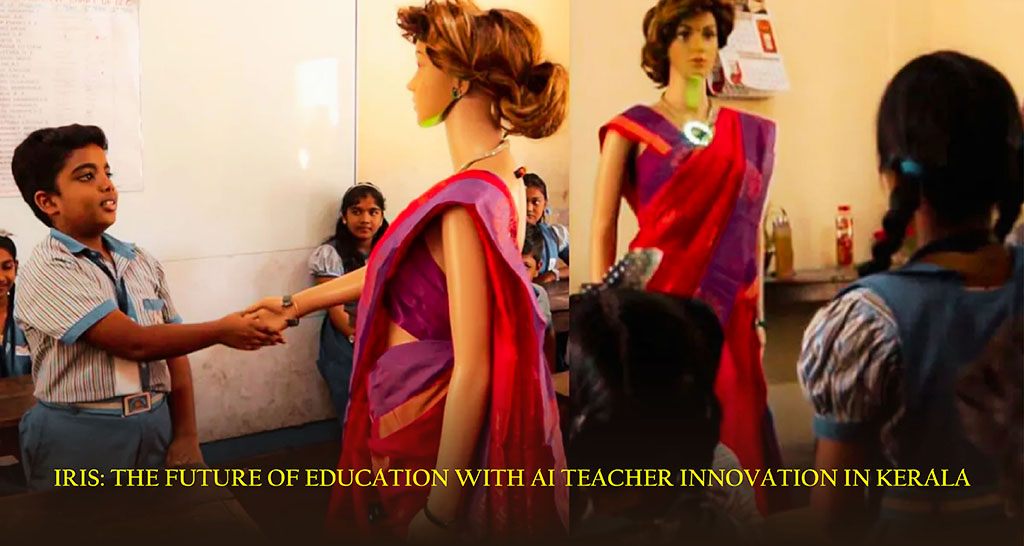A school in Thiruvananthapuram, Kerala, has taken a revolutionary step in education. They introduced the first robot teacher, Iris, in the state and possibly the entire country. This robot was made in partnership with Makerlabs Edutech and is part of the Atal Tinkering Lab (ATL) project started by NITI Aayog in 2021. The project aims to make extracurricular activities in schools more fun. Iris, the robot teacher, has wheels so it can move around and is powered by artificial intelligence (AI). This has dramatically impacted education in Kerala and excited everyone about the future of learning.
Introducing Iris at KTCT Higher Secondary School last month sparked enthusiasm and curiosity. Makerlabs’ Instagram video showcased Iris’s capabilities, emphasizing its role as a multilingual AI teacher. Iris can answer complex questions across various subjects, provide personalized voice assistance, and facilitate interactive learning experiences.
Capabilities of Iris:
One of Iris’s interesting features is its ability to personalize learning experiences. The humanoid robot can adapt to different learning styles, making education more engaging for students. The introduction of Iris marks a new era in which AI plays a supportive role in the classroom, potentially transforming the way students acquire knowledge.
Innovation by Makerlabs Edutech:
Makerlabs Edutech, the driving force behind Iris, proudly positions its creation as a significant innovation set to transform the learning scene. The company’s commitment to pushing the boundaries of what’s possible is evident in Iris, representing the leading edge of innovation in education. Makerlabs sees Iris as a leader in more groundbreaking innovations that inspire confidence in the evolving role of AI in education.
The Atal Tinkering Lab (ATL) Project:
Iris is connected to the ATL project started by NITI Aayog in education. The project wants to improve extracurricular activities in schools and create a more exciting way to learn. Iris helps with this by giving students a special and interactive learning experience. This could lead to more exciting developments in educational technology in the future.
The Future of Education:
While the long-term impact of Iris on education remains to be seen, it undoubtedly provides insight into the future of learning. The incorporation of AI in the classroom, as shown by Iris, has the potential to transform traditional teaching methods. The robot’s capability to answer complex questions and adapt to various learning styles hints at a future where AI collaborates with human educators to craft a more personalized and engaging educational experience.
Iris, the AI teacher robot, represents a remarkable advancement in Kerala’s education system. Developed as part of the ATL project, this humanoid robot teacher has the potential to reshape the future of education, making it more personalized, interactive, and engaging for students. As the educational landscape continues to evolve, initiatives like Iris provide a glimpse into the transformative role that AI could play in classrooms worldwide. The journey has just begun, and the success of Iris may open the way for more innovative developments in the convergence of education and artificial intelligence.

